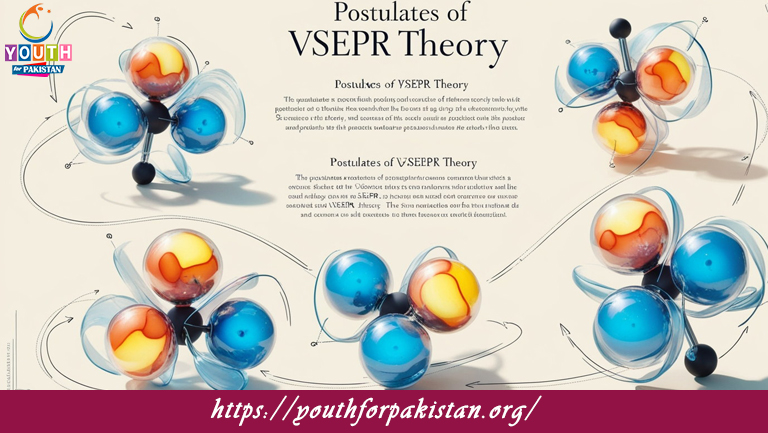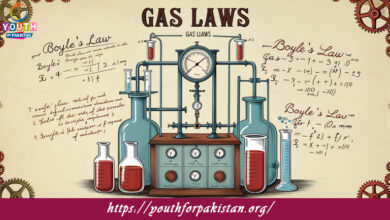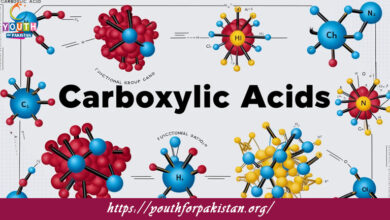Postulates Of VSEPR Theory MDCAT MCQs with Answers

Welcome to the Postulates Of VSEPR Theory MDCAT MCQs with Answers. In this post, we have shared Postulates Of VSEPR Theory Multiple Choice Questions and Answers for PMC MDCAT 2024. Each question in MDCAT Chemistry offers a chance to enhance your knowledge regarding Postulates Of VSEPR Theory MCQs in this MDCAT Online Test.
According to VSEPR theory, the shape of a molecule is determined by:
a) The size of the central atom
b) The number of lone pairs and bond pairs around the central atom
c) The type of bonds present
d) The molecular weight
The VSEPR theory assumes that electron pairs around the central atom:
a) Occupy the maximum distance from each other
b) Attract each other
c) Repel each other
d) Align themselves in a linear fashion
According to VSEPR theory, which type of electron pair repulsion is the strongest?
a) Bond pair-bond pair
b) Lone pair-lone pair
c) Bond pair-lone pair
d) Bond pair-bond pair and lone pair-lone pair are equal
In VSEPR theory, the geometry of a molecule is influenced by:
a) The number of atoms only
b) The total number of electron pairs around the central atom
c) The type of hybridization only
d) The molecular mass
VSEPR theory predicts that molecules will adopt geometries that:
a) Minimize bond angles
b) Maximize bond angles
c) Have equal bond lengths
d) Minimize lone pair repulsion only
According to VSEPR theory, a molecule with four electron pairs around the central atom will have which geometry?
a) Linear
b) Trigonal planar
c) Tetrahedral
d) Octahedral
VSEPR theory is used to predict the:
a) Electron affinity of the molecule
b) Bond length and strength
c) Molecular shape and bond angles
d) Heat of reaction
In VSEPR theory, the bond angles in a trigonal planar molecule are approximately:
a) 90°
b) 109.5°
c) 120°
d) 180°
The VSEPR theory assumes that:
a) Electron pairs are distributed evenly in space
b) Electron pairs are concentrated in the central atom
c) Electron pairs repel each other to the maximum extent
d) Electron pairs form bonds with the nearest atom
According to VSEPR theory, the shape of a molecule with three bond pairs and one lone pair is:
a) Trigonal planar
b) Tetrahedral
c) Trigonal pyramidal
d) Bent
VSEPR theory predicts that a molecule with two lone pairs and two bond pairs will have which shape?
a) Tetrahedral
b) Trigonal bipyramidal
c) Bent
d) Linear
According to VSEPR theory, the geometry of a molecule with five electron pairs around the central atom is:
a) Trigonal planar
b) Tetrahedral
c) Trigonal bipyramidal
d) Octahedral
VSEPR theory states that lone pairs of electrons:
a) Do not affect molecular shape
b) Repel less strongly than bond pairs
c) Repel more strongly than bond pairs
d) Form bonds with other lone pairs
In a molecule with four bond pairs and no lone pairs, the shape is:
a) Linear
b) Trigonal planar
c) Tetrahedral
d) Trigonal pyramidal
According to VSEPR theory, the ideal bond angles in a tetrahedral molecule are:
a) 90°
b) 109.5°
c) 120°
d) 180°
The shape of a molecule with five bond pairs and no lone pairs is:
a) Trigonal bipyramidal
b) Tetrahedral
c) Octahedral
d) Linear
According to VSEPR theory, the molecular geometry of a molecule with six bond pairs and no lone pairs is:
a) Octahedral
b) Tetrahedral
c) Trigonal bipyramidal
d) Linear
VSEPR theory predicts that a molecule with three bonding pairs and two lone pairs will have which shape?
a) Linear
b) Trigonal bipyramidal
c) T-shaped
d) Square planar
In VSEPR theory, the shape of a molecule with two bond pairs and one lone pair is:
a) Linear
b) Bent
c) Trigonal planar
d) Tetrahedral
VSEPR theory helps to determine the:
a) Molecular weight
b) Bond length
c) Molecular shape and bond angles
d) Heat capacity
The VSEPR theory is based on the idea that:
a) Electron pairs arrange themselves to minimize repulsion
b) Electron pairs arrange themselves to maximize attraction
c) Atoms bond to achieve octet configuration
d) Electrons are evenly distributed in the molecule
In a molecule with two bond pairs and two lone pairs, the shape is:
a) Trigonal planar
b) Bent
c) Tetrahedral
d) Linear
According to VSEPR theory, the molecular shape of a molecule with three bond pairs and one lone pair is:
a) Tetrahedral
b) Trigonal pyramidal
c) Bent
d) Trigonal planar
The bond angle in a trigonal pyramidal molecule is approximately:
a) 90°
b) 109.5°
c) 120°
d) 180°
VSEPR theory can predict the shape of molecules based on:
a) The number of protons
b) The number of neutron pairs
c) The arrangement of electron pairs
d) The molecular mass
The molecular shape of a molecule with four bonding pairs and one lone pair is:
a) Tetrahedral
b) Trigonal pyramidal
c) Bent
d) Trigonal bipyramidal
The geometry of a molecule with two lone pairs and three bond pairs is:
a) Tetrahedral
b) Trigonal pyramidal
c) Trigonal bipyramidal
d) Linear
In VSEPR theory, the bond angle in an octahedral molecule is:
a) 90°
b) 109.5°
c) 120°
d) 180°
The shape of a molecule with three bond pairs and no lone pairs is:
a) Tetrahedral
b) Trigonal planar
c) Linear
d) Trigonal pyramidal
VSEPR theory assumes that lone pairs:
a) Do not affect bond angles
b) Occupy less space than bond pairs
c) Occupy more space than bond pairs
d) Are always involved in bonding
A molecule with four bond pairs and no lone pairs has which geometry?
a) Linear
b) Trigonal planar
c) Tetrahedral
d) Octahedral
The shape of a molecule with two bond pairs and one lone pair is:
a) Bent
b) Linear
c) Trigonal planar
d) Trigonal pyramidal
VSEPR theory helps predict the shape of molecules by considering:
a) Only the number of lone pairs
b) Only the type of bonds
c) The total number of electron pairs around the central atom
d) The atomic number of the central atom
A molecule with five bond pairs and one lone pair has which geometry?
a) Square pyramidal
b) Tetrahedral
c) Trigonal bipyramidal
d) Octahedral
The shape of a molecule with three bond pairs and no lone pairs is:
a) Tetrahedral
b) Trigonal pyramidal
c) Bent
d) Trigonal planar
VSEPR theory predicts that a molecule with four bonding pairs and two lone pairs will have which shape?
a) Square planar
b) Tetrahedral
c) Trigonal bipyramidal
d) Octahedral
The ideal bond angles in a trigonal planar molecule are:
a) 90°
b) 109.5°
c) 120°
d) 180°
The shape of a molecule with four bond pairs and two lone pairs is:
a) Trigonal bipyramidal
b) Bent
c) Square planar
d) Tetrahedral
VSEPR theory is used to predict:
a) Molecular weight
b) Bond angles
c) Electron distribution
d) Atomic mass
According to VSEPR theory, a molecule with three bond pairs and two lone pairs will have which shape?
a) Tetrahedral
b) Linear
c) Trigonal pyramidal
d) T-shaped
If you are interested to enhance your knowledge regarding Physics, Chemistry, Computer, and Biology please click on the link of each category, you will be redirected to dedicated website for each category.





